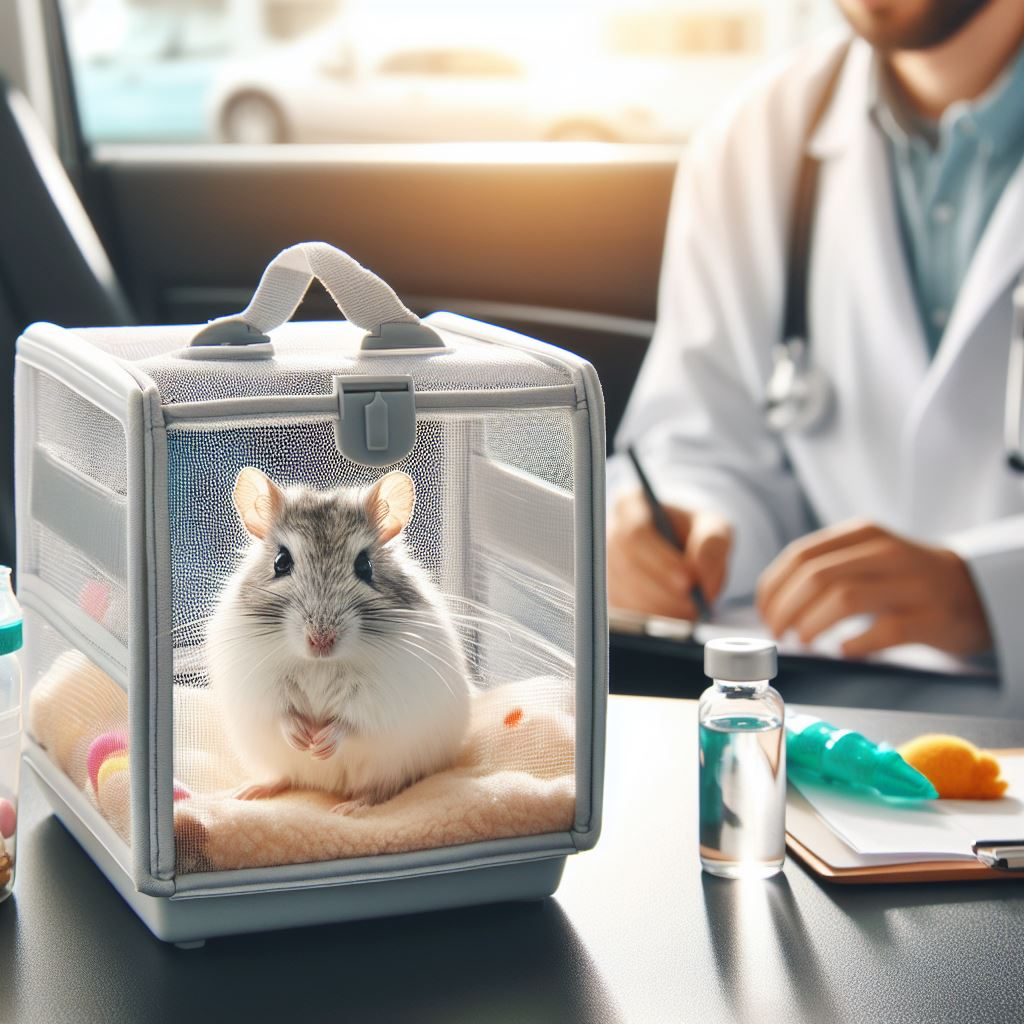Why is My Gerbil Shaking?
Have you ever noticed your gerbil shaking? Are you concerned that it might be a sign of illness or discomfort? In reality, there are various reasons why gerbils shake, some of which are normal, while others require attention and care. In this article, I’ll explore common reasons for gerbil shaking and provide insights on how to assist a shaking gerbil. I’ll also guide you on recognizing when shaking is not a sign of seizures or illness and when professional veterinary care is necessary.
Common Reasons for Gerbil Shaking
Gerbils are highly sensitive and active creatures, and their bodies and emotions can be influenced by external factors. Here are some common reasons that may lead to gerbil shaking:
Cold and Temperature Changes
Gerbils are temperature-sensitive, with an ideal range between 18-24°C. Shaking can occur if the temperature is too low as they shake to maintain body warmth. On the other hand, excessive heat may cause sweating. Sudden temperature changes, such as moving from a warm room to a chilly balcony or from a frozen transport box to a warm store, can make gerbils uncomfortable.
Nervousness and Anxiety
Gerbils are curious and alert animals, showing interest in their surroundings but also becoming fearful or uneasy about certain things. Sudden movements, unfamiliar environments, strangers (human or animal), or excessive handling can induce nervous shaking. Loneliness or lack of companionship can also affect their emotions and bodies.
Excitement
The lively nature of gerbils may lead to shaking when they are excited, whether playing, exploring, eating treats, or interacting with peers. This type of shaking is usually brief, characterized by slight body or tail movements, bright eyes, erect ears, and rapid breathing—a normal expression of joy and excitement.
Illness
Gerbils can shake due to illnesses like ear infections, strokes, or seizures. These conditions affect their nervous system or balance, causing involuntary body or head tremors. This type of shaking is persistent and accompanied by symptoms like reduced appetite, slow movement, tilted head, watery eyes, etc. It signals an abnormality, requiring prompt intervention and treatment.

How to Help a Shaking Gerbil
If your gerbil is shaking, assess the cause and take appropriate measures to assist them. Here are some common methods:
Ensure a Comfortable Environment:
Check if the cage is in a suitable location, avoiding direct sunlight, heating, or air conditioning drafts.
Adjust the cage temperature to the range of 18-24°C to prevent the gerbil from feeling too cold or too hot.
Provide ample bedding like wood shavings, tissues, or cotton for digging, nesting, or hiding.
Offer warm shelters or pouches for the gerbil to seek warmth or rest.
Reduce Environmental Stress:
Create a quiet and comfortable environment, away from noise, odors, or other disturbances.
Provide hiding spots like wooden houses, cardboard boxes, or ceramic jars for the gerbil to retreat when feeling uneasy.
Respect the gerbil’s personality and preferences, avoiding forced petting or handling unless they initiate or express willingness.
Supply toys or entertainment features such as exercise wheels, tunnels, or wooden sticks for them to play with or exercise.
Handle with Care:
If you want to pet or hold your gerbil, let them get accustomed to your scent and sound.
Approach them slowly with gentle tones and movements.
Lift the gerbil gently from below, ensuring support for all four limbs to avoid a sense of suspension or unease.
Hold the gerbil against your chest or shoulder, allowing them to feel your body warmth and heartbeat for reassurance.
Avoid startling the gerbil; refrain from sudden movements or placing them in contact with your hair or clothes, and keep eyes and teeth out of their view.
Observe Other Symptoms:
If the gerbil’s shaking is due to illness, monitor other symptoms like appetite, mental state, weight, and excretion for any abnormalities or changes.
Seek immediate veterinary attention if the gerbil exhibits:
Shaking lasting over a minute or occurring frequently.
Shaking accompanied by symptoms such as a tilted head, watery eyes, drooping ears, or foaming at the mouth.
Post-shaking conditions like fainting, seizures, difficulty breathing, lack of coordination, or falling.
After-shaking effects like reduced appetite, weight loss, diarrhea, or constipation.
Supplement Vitamins:

Some gerbils may shake due to a deficiency in essential vitamins like B, C, or E.
Provide a diet rich in these vitamins through fresh fruits, vegetables, and herbs.
Under veterinary guidance, consider supplementing the gerbil’s diet with liquid or tablet forms of these vitamins for quick absorption and utilization.
Shaking is Not Necessarily a Sign of Seizures or Disease
Gerbil owners may worry that shaking indicates epilepsy or serious illness. However, this isn’t always the case. Gerbil shaking has many normal causes, and as long as it is occasional or brief, it usually does not adversely affect their health. Consider the following criteria to determine if a gerbil’s shaking is normal:
Observe the frequency and duration of the shaking; occasional or short-duration shaking is typically normal.
Evaluate the location and intensity of the shaking; full-body or severe shaking is usually abnormal.
Analyze the reasons and circumstances of the shaking; if it results from temperature, emotions, or excitement, it is likely normal.
Assess the gerbil’s post-shaking reactions and behaviors; if they return to normal or recover, it is typically a normal response.
If you have any concerns or questions about your gerbil’s shaking, consult with a veterinarian or experienced gerbil caretaker for professional advice and guidance.
Conclusion
In conclusion, gerbils shake for various reasons, and appropriate measures should be taken based on the specific situation. Mild shaking, unless accompanied by other symptoms, is generally not a cause for excessive concern. Gerbils are adorable and fascinating creatures, expressing themselves in various ways. As responsible gerbil owners, we should observe, understand, and care for them, providing a warm and comfortable home for their healthy and happy lives



